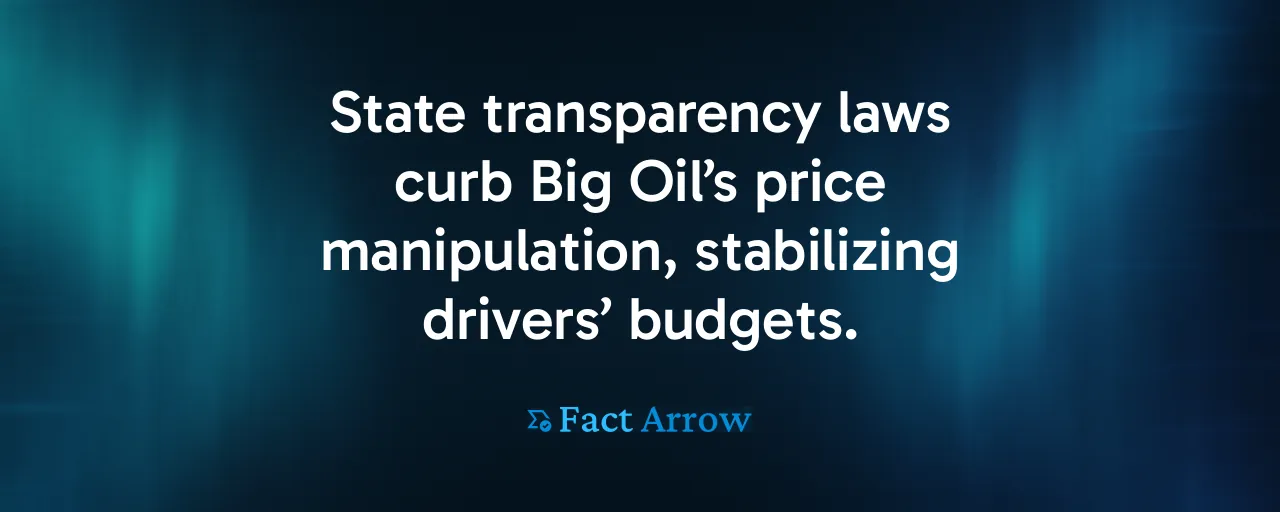A Victory for California Drivers
Californians hit the road this July with a rare win: gas prices at their lowest in years. Predictions of a 65-cent-per-gallon spike, fueled by opponents of the state's climate policies, fizzled out when July 1 arrived. Instead of soaring costs, pumps across the state showed declining prices, catching many by surprise. This moment marks a turning point in the fight against volatile fuel markets, driven by bold state actions to rein in oil industry practices.
Governor Gavin Newsom's administration has leaned hard into transparency and accountability. New laws force oil companies to open their books, revealing pricing tactics that have long burdened drivers. These reforms, paired with rules ensuring refineries maintain steady supplies, have stabilized costs. For families budgeting every dollar, this is a lifeline.
Unmasking Big Oil's Playbook
For years, California's gas prices have outpaced the nation's, often by $1.50 per gallon or more. Oil companies pointed fingers at taxes and environmental rules, but a closer look tells a different story. During fall 2022, a $2.61 gap between California and U.S. prices emerged, even when crude oil costs aligned. This 'mystery surcharge' fueled suspicions of profiteering, prompting the state to act.
Legislation signed in 2023 created a watchdog to monitor petroleum markets. Refiners now face scrutiny over profit margins, with penalties looming if they exceed historical norms. Data from the California Energy Commission shows prices dipped after these disclosure rules took effect. By shining a light on opaque practices, the state has curbed the industry's ability to inflate costs unchecked.
Yet, the battle isn't over. Refiners have pushed back, threatening shutdowns to dodge accountability. These tactics, often cloaked as economic necessity, aim to preserve profits at the expense of commuters. California's response has been clear: prioritizing people over corporate bottom lines.
Climate Progress Without Pain at the Pump
California's ambitious climate agenda, including the Low-Carbon Fuel Standard, has long been a scapegoat for high gas prices. Critics warned that stricter carbon targets, effective July 2025, would trigger crippling costs. Those claims collapsed when prices dropped instead. Research from UC Davis shows the program's short-term impact is modest, adding just 5 to 8 cents per gallon, while paving the way for a 42 percent drop in per-mile fuel costs by 2045.
These policies fight climate change and protect vulnerable communities. Low-income drivers, who spend a larger share of their income on fuel, benefit from stable prices and cleaner air. Rural areas, often left behind in transit investments, gain from reforms that keep costs predictable. By pairing environmental goals with consumer protections, California proves progress doesn't have to come at the expense of everyday people.
A Legacy of Holding Power Accountable
This isn't California's first clash with the oil industry. Since the 1990s, when reformulated gasoline rules created a unique fuel blend, the state has grappled with supply constraints and price spikes. Past investigations, from 1999 to 2022, flagged low inventories and limited suppliers as key drivers. Each time, the industry deflected blame, citing regulations while pocketing windfall profits during outages.
Today's reforms build on that history. Laws passed in 2023 and 2024 empower the state to mandate minimum refinery inventories and approve maintenance schedules, preventing artificial shortages. These measures, rooted in decades of evidence, tackle structural flaws in the fuel market. They also send a message: California won't let corporate interests dictate the cost of living.
Empowering Communities, Not Corporations
The stakes extend beyond the pump. High fuel costs ripple through grocery bills, freight charges, and small business budgets. Low-income households, already stretched thin, feel the pinch most. By curbing profiteering, California's reforms free up dollars for families to spend on essentials. Gas-tax revenues, now topping $5 billion annually, fund roads and transit, easing congestion and connecting communities.
Environmental justice also hangs in the balance. Cleaner fuels and stricter emissions rules deliver healthier air to neighborhoods near refineries, often home to marginalized groups. Advocates for these communities have long demanded accountability from polluters. California's approach, which blends transparency, oversight, and climate action, answers that call while keeping drivers in mind.
The Road Ahead
California's success in July 2025 is a blueprint for balancing economic relief with environmental progress. By exposing Big Oil's pricing tactics and enforcing supply stability, the state has defused a manufactured crisis. Challenges remain. Refinery closures loom, and legal battles over profit caps could intensify. Sustaining this momentum requires vigilance and a commitment to putting people first.
Investing in electric vehicles and public transit can further reduce reliance on volatile fuel markets. Targeted rebates for low-income drivers during price spikes could ease burdens without derailing climate goals. Collaboration with neighboring states, which rely on California's fuel exports, could strengthen regional supply chains. These steps build resilience against future shocks.
For now, Californians can celebrate a hard-fought victory. The myth of a 65-cent price hike has been debunked, and lower costs alongside greater accountability are now the reality. This moment proves that bold action, grounded in fairness and foresight, can outmaneuver corporate greed and deliver results for all.
